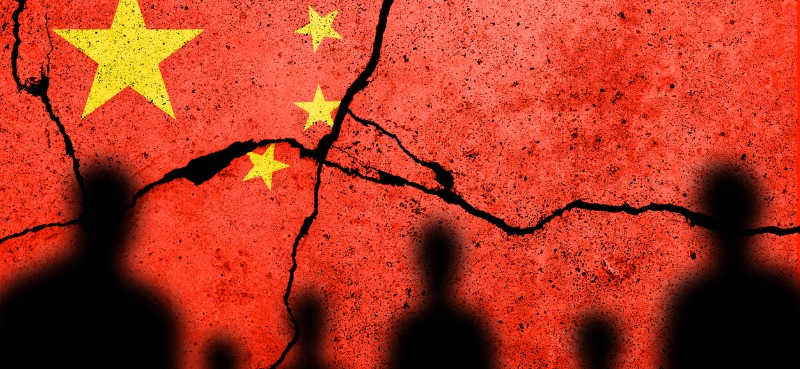China has long been a powerhouse of global economic growth…
But today, the country’s economy is on the brink of catastrophe. In fact, China is facing its most significant financial crisis in 25 years.
The craziest part is that no one seems to be talking about it.
While the talking heads paint a picture of resilience, the underlying data tells a far more concerning story…
1. Manufacturing slowdown
Manufacturing has traditionally been a cornerstone of China’s economy. But recently, factory output has significantly underperformed expectations, as has industrial production growth. This slowdown signals deep issues within the industrial sector.
2. Cratering real estate market
China’s new home sales have shrunk at the fastest pace in nine years. And that’s despite the central bank’s massive rate cuts.
What’s more, China currently has 390 million square meters of completed but unsold real estate in the market. To put this into perspective, that’s the size of 6.6 Manhattans. This massive oversupply will likely push down property prices for years to come.
3. Local government debt crisis
The real estate crisis is having a particularly severe impact on local governments. Property taxes, which typically account for 38% of local government revenue, have plummeted.
As a result, local governments in China are facing a severe financial crunch. Now, authorities are going after businesses and individuals for unpaid taxes dating back 10 years. The Wall Street Journal reports that off-the-book debts held by local governments in China could be $7–11 trillion, with as much as $800 billion at risk of default.
4. Rising unemployment
China’s unemployment rate has risen for the first time since February—despite the government’s efforts to stimulate the economy. The rising unemployment rate suggests that these measures are falling short, and the labor market is deteriorating.
5. Corporate suffering
Almost every company with China operations is getting smoked right now—including names like Levi’s, Nike, Starbucks, and Qualcomm.
And Alibaba—China’s ecommerce giant—just reported weak earnings. It missed on both sales and earnings, and income was down 30% year over year.
The economic stress isn’t limited to the public sector. Recently, Dongling Group, one of China’s largest private steel companies with annual sales of $20 billion, filed for bankruptcy. This was a top-500 enterprise that had been stable for nearly two decades—so its collapse is a serious red flag.
6. Capital flight
The nation has experienced 12 straight months of capital outflows—a trend that shows no signs of slowing. This exodus of foreign capital indicates foreign investors are losing confidence in China’s economic prospects… and puts pressure on China’s currency and financial markets.
7. The central bank’s shifting gold strategy
After 18 consecutive months of buying gold, China’s central bank has halted its purchases of the precious metal over the past three months. This change could indicate that the government may be looking to liquidate its current gold assets to address immediate financial concerns.
The bottom line
China is facing a serious financial crisis… And given the fact that the government has done everything it can to stimulate the economy, there’s no telling where the bottom will be.
Considering China’s global impact, these problems could easily ripple beyond the nation’s borders—impacting global supply chains, commodity prices, and financial markets.
Investors may want to reduce their exposure to Chinese markets or companies with major operations in the country.
But the most important thing you can do is stay informed as the situation continues to develop. Understanding major economic shifts and taking strategic steps to navigate them will allow you to stay safe and take advantage of new opportunities for profit.
One of the best ways to stay ahead of the markets is with WSU Premium. Each week, Frank and Daniel deep-dive into what’s moving the markets… including under-the-radar topics the financial media isn’t talking about—like the crisis in China… and specific investment ideas to play them.























